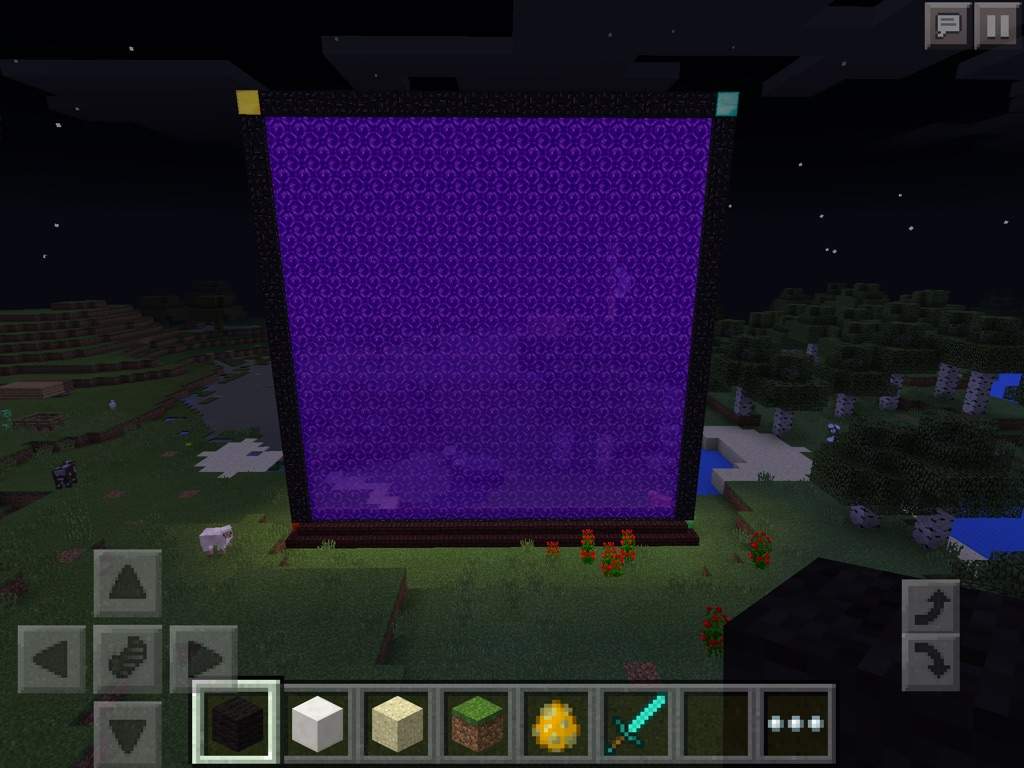
What is the Biggest Nether Portal You Can Make?
As an avid Minecraft enthusiast, I’ve always been fascinated by the mysterious Nether realm. One particularly intriguing aspect is the construction of Nether portals, gateways that transport players between the Overworld and the Nether. Naturally, I set out to discover the largest possible dimensions for these portals.
My journey led me to explore vast Minecraft forums and consult with experienced players. Surprisingly, I stumbled upon an intriguing trend: while there is no official limit to the size of Nether portals, there are certain practical considerations and optimal dimensions to consider.
The Practical Implications of Portal Size
Loading Times
As the dimensions of a Nether portal increase, so does the amount of game data that must be loaded when traversing it. This can lead to significant loading times, especially on lower-end devices or servers with limited resources.
Stability
Larger portals require more Obsidian blocks, which can make them more vulnerable to attacks from mobs or players. Moreover, the increased number of blocks increases the potential for glitches or instabilities within the portal.
Efficiency
While larger portals may seem more impressive, they are not necessarily more efficient. Traveling through a Nether portal requires a set amount of time regardless of its size. Therefore, smaller portals can be just as effective while reducing the resource requirements and potential risks.
Optimal Dimensions for Nether Portals
Based on my research and the collective wisdom of the Minecraft community, the following dimensions are generally considered optimal for Nether portals:
- **Width:** 4 blocks
- **Height:** 5 blocks
This size provides a convenient entry point that is large enough to accommodate most players and mobs while remaining manageable in terms of resource requirements and stability.
Advanced Techniques
While the optimal dimensions provide a solid starting point, experienced players may explore advanced techniques to create larger or more elaborate Nether portals:
Multiple Portals
Interconnecting multiple Nether portals of the same size can create larger, more complex gateways. This technique allows players to travel longer distances or explore multiple areas of the Nether simultaneously.
Decorative Elements
Obsidian is not the only block that can be used to create Nether portals. Players can incorporate other blocks, such as Glowstone or Nether Bricks, to add decorative elements and enhance the aesthetic appeal of their portals.
“I’ve built a Nether portal surrounded by a moat of lava. It looks intimidating and keeps the mobs away!”
Frequently Asked Questions (FAQs)
Can I make a Nether portal any size I want?
Theoretically, yes, but practical considerations limit the optimal size to around 4×5 blocks.
What happens if I make a portal too large?
Loading times may increase, stability may be compromised, and efficiency may be reduced.
Can I use other blocks to build a Nether portal?
Yes, but only Obsidian can activate the portal. Other blocks can be used for decorative purposes.
Conclusion
The biggest Nether portal you can make is ultimately determined by your specific needs and preferences. While there is no official limit, the optimal dimensions of 4 blocks wide and 5 blocks high provide a balance between practicality and efficiency. With a bit of creativity, you can create Nether portals that are not only functional but also visually striking.
Are you interested in learning more about Nether portals or other Minecraft topics? Join our online community and connect with fellow enthusiasts.

Image: aminoapps.com

Image: www.reddit.com
Rate My Nether Portal : Minecraft Follow these steps to construct a portal to the Nether: Add obsidian and your combustible block (fire charge, flint and steel, etc.) to your hot bar. Place four obsidian blocks on the ground side-by-side. You cannot build Nether Portals underwater or in the End. Place four obsidian blocks on top of one edge.